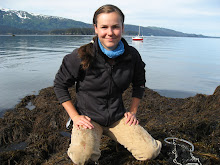They don't mess around here, when classes start, they start. Thursday and Friday were filled 9-5 with lecture and lab giving us enough material to keep us busy for the three day weekend. Of course no testing for another few weeks, but I think we are all still a little anxious about this medical school thing and, in these first days at least, everyone is going to class, and everyone is setting up study groups and review sessions.
Stanford Curriculum starts out with the basic foundations in science before moving into a systems based approach to education. We started off then with Foundations in Molecular Biology, Histology (Cells to Tissues) and Anatomy. First impressions - all of the lecturers are eloquent, excited about their subject and fairly good at communicating the information to the students. My only critiques, MoBio prof seems to think every question translates to "I don't get it" and starts over on his explanation. Not helpful to the questioner necessarily, but admittedly there is almost certainly someone in the class that doesn't get it. And secondly the Cells to Tissues lecturer could be watched at half speed and it would still be hard to get everything she covers. Thankfully we have all of our lectures videotaped and available online so it is indeed possible to watch histology lecture at half speed. In any case, I am so far impressed with the faculty here and hope it will continue this way as the year moves on.
Specifically, MoBio has been mostly a review. Thanks to my background in science and experience in Molecular Biology in the laboratory, I will have to relearn the details, but the basic concepts are all familiar. Histology however is completely new to me. Of course I have looked at stained onion cells and amoeba under the microscope and I know basic cell structure; that the Nucleus is where DNA replication and transcription takes place, the mitochondria are the power plants of the cell, lysosomes are in charge of waste disposal, but that is apparently not enough to qualify me as your doctor. Last week we delved into histology of the blood and all the cells that are found in both the peripheral blood and the bone marrow. I think the last time I used a microscope was at least 6 years ago, and this time we didn't spend our first day in lab passing a microscope certification test. Once I remembered how to work it though, I remembered something. Microscopes are cool. Everything under high magnification takes on a new life, Blood is no exception looking homogeneous at a macroscopic level, but beautiful and diverse under the microscope.
Lastly, but definitely not least, is Anatomy. I have never had an anatomy class beyond what is incorporated in general biology. Fetal Pigs have given me some introduction to dissection but is in no way sufficient preparation for the cadavers in our lab. It is a great privilege to have the opportunity to learn anatomy of the body first hand on bodies donated for our education. To feel and see the separation of skin, fascia and muscle, to observe the nerve bundles running from spinal cord along their path to the point of innervation, and to follow the muscle from bone to bone could not be replaced by book or even 3D model. There is something amazing too in learning about our own bodies. Like learning the chemistry of photosynthesis causes you to look at plants in a new light, learning the anatomy and histology of the human body will change the way I view and respect the physical us, as the complicated organisms that we are, forever.
Monday, September 1, 2008
Subscribe to:
Post Comments (Atom)




No comments:
Post a Comment